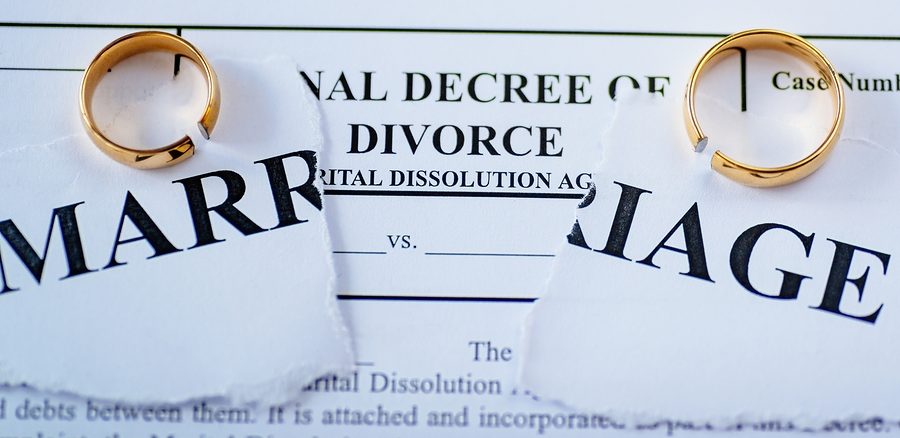When making the decision to file for divorce, one of the main concerns is finances. As a result, the first question couples tend to ask themselves is how much it’s going to cost to hire divorce lawyers. But like the decision to end a marriage, the answer to this question is complicated. There are many variables that influence how much it will cost to have an attorney represent your divorce filing.
Continue reading to learn some facts that might help you better understand what to expect in terms of paying for a divorce lawyer.

The Cost of Divorce
Divorce alone can put a financial stress on a family. So the concern about paying for a lawyer, especially if each spouse is retaining their own counsel, is a common one. The amount of money ultimately spent for a divorce lawyer depends on several factors unique to a client’s case. This means that divorce lawyer costs will vary from client to client. Factors that commonly influence the total cost of a divorce lawyer include, but are not limited to, the law firm’s payment rate business model, your place of residence, the relationship with your spouse, whether or not the divorce is being contested, and more.
For instance, if you are on friendly terms with your spouse, you have no children, nor own any property, a divorce should be relatively quick and inexpensive. In contrast, if you are in contention with your spouse and you have children and shared owned assets, it could take more time and effort to complete a divorce.
Here are Some Facts You Can Rely On
According to forbes.com, the average cost of divorce in the United States is around $15,000, most of which is allocated to legal fees. Keep in mind that this is just the average. After all, the American Psychological Association confirms that virtually 50 percent of marriages in our country result in divorce. Some couples pay as little as $1,000, while others have paid millions.
Attorney fees play a large part in how much you pay for a divorce, but they are not all the same. Divorce lawyers can charge anywhere from $75 an hour to $500 an hour. A lawyer can charge more for more complex and challenging divorces, or less for turn-key divorce solutions. On average, you can expect a divorce lawyer to charge around $250 an hour, but this varies among law firms, and from state to state.
For instance, a divorce lawyer on Rodeo Drive will likely charge more than one in Bowling, Ohio. Furthermore, it is important to know that most lawyers charge in increments of six minutes or less, which means that any simple lawyer-client interaction will cost you money. This includes phone conversations and possibly emails. Always ask your divorce attorney about their billing model to know exactly what and when you will be billed.
Cost-Saving Divorce Alternatives
There are several ways a couple can divorce in a cost-efficient manner. Two popular approaches are collaborative divorce and mediation. See our blog, “The Difference Between Mediation and Collaborative Divorce” to learn more about both options. Also, being more agreeable and making more compromises with your spouse helps make a divorce faster, which in turn makes it cheaper. Talk to your divorce lawyer about payment plan options, and advice on how to budget a divorce expense.
Ask a Trusted Orlando Divorce Lawyer
Contact the Law Office of Shane T. Herbert at 407-887-7058 to get trusted legal advice from a licensed divorce attorney in Orlando, Florida. You can choose to have your first appointment over the phone or even video conference, if needed. If you choose an in-office visit, our family law office is conveniently located in the Metro West area, within the Offices of Veranda Park, which offers free parking. We look forward to helping you resolve your family legal matters.





